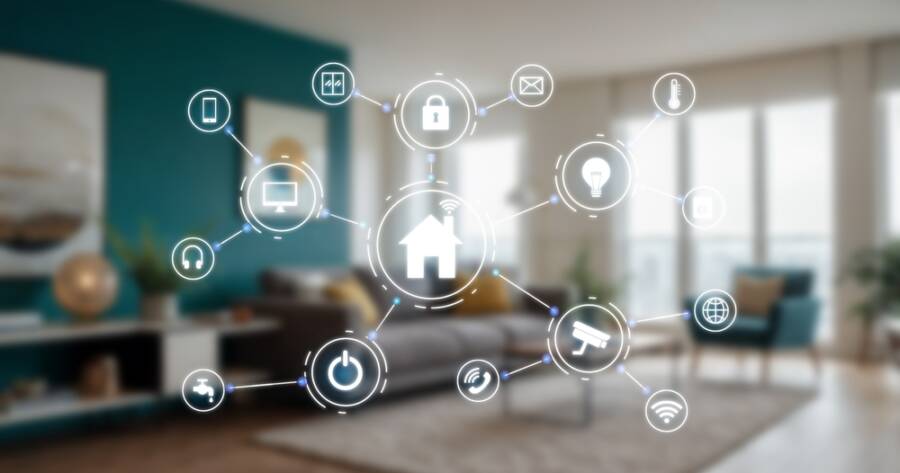Imagine stepping into a home where the lights adjust to your mood, the coffee brews on cue, and security systems think autonomously. With the rapid advancements in technology, the smart home revolution offers endless possibilities for enhancing comfort and efficiency. These modern marvels might redefine how we interact with our living spaces, bringing convenience and sustainability into daily life through interconnected devices.
Understanding Smart Home Technology
Smart home technology refers to a sophisticated network of devices and systems designed to automate various household functions. These gadgets often connect via Wi-Fi or Bluetooth, allowing for seamless integration and control through smartphones or voice-activated assistants.
Such technologies could encompass everything from lighting and heating to security and entertainment systems. The potential is immense, offering tailored solutions to meet diverse needs.
Connectivity and Integration
For a smart home to function optimally, integration and connectivity are key. Devices like smart hubs can serve as the central command, linking individual components across a unified platform.
This network might facilitate smooth communication among different devices, thereby enhancing user control and automation. As technology progresses, compatibility between products from different manufacturers is likely to improve, broadening the scope for customization.
Smart Lighting and Climate Control
Energy efficiency often tops the list of benefits associated with smart lighting and climate control systems. Smart bulbs and thermostats help manage consumption by adjusting automatically based on user preferences or external conditions.
For example, lights might dim when natural daylight is sufficient, or the heating could lower when a home reaches optimal temperature levels. These dynamic systems allow for more sustainable living while potentially reducing utility bills.
Security Systems and Safety Features
One compelling advantage of smart homes lies in enhanced security measures. Modern systems offer possibilities such as real-time video surveillance, remote monitoring, and automated alerts.
Smart locks can permit entry without traditional keys, and motion detectors may trigger immediate notifications if unusual activity occurs. While these technologies can bolster home safety, users should be mindful of privacy concerns and ensure robust data protection measures are in place.
Entertainment and Lifestyle Enhancements
The entertainment sector has also embraced smart technology, promising enriched experiences. From smart TVs offering personalized content recommendations to multi-room audio systems that can adapt to your music preferences, entertainment options are increasingly tailored to individual tastes.
Moreover, lifestyle enhancements, such as automated kitchen gadgets or voice-controlled workout programs, could simplify daily routines and promote well-being.
Considerations and Challenges
Despite the allure of smart homes, potential drawbacks need consideration. Cost can be a significant factor, as initial investments for devices and associated infrastructure might be high.
Additionally, concerns about data privacy and security underscore the importance of choosing reputable manufacturers who prioritize encryption and safe data handling. Moreover, technical glitches or connectivity issues may arise, necessitating regular updates and some degree of troubleshooting.
The Role of AI and Machine Learning
Artificial Intelligence (AI) and machine learning are pivotal in driving the evolution of smart homes. These technologies enable systems to learn user habits and preferences, potentially predicting needs and automating responses accordingly.
For instance, a smart fridge might suggest grocery lists based on usage patterns or a virtual assistant could curate daily schedules. However, the effectiveness of such systems depends heavily on the accuracy of data and algorithms used.
Future of Smart Homes
The future of smart homes may hold diverse and transformative potentials. As innovation continues, emerging technologies such as augmented reality (AR) and virtual reality (VR) might increasingly blend with smart home ecosystems, offering immersive experiences.
Furthermore, advancements in green tech might lead to entirely self-sustaining homes powered by renewable energy sources such as solar panels combined with smart grids.
Learn More Today!
The journey to creating a tech haven begins with understanding the diverse elements of smart home technology. By carefully considering integration, privacy, cost, and emerging trends, homeowners can gradually transition their spaces into innovative, efficient environments.
As smart homes continue to evolve, they may play a crucial role in shaping sustainable, personalized living spaces. With reflective planning and consideration, the advantages could significantly impact daily life, transforming how individuals interact with their surroundings.

